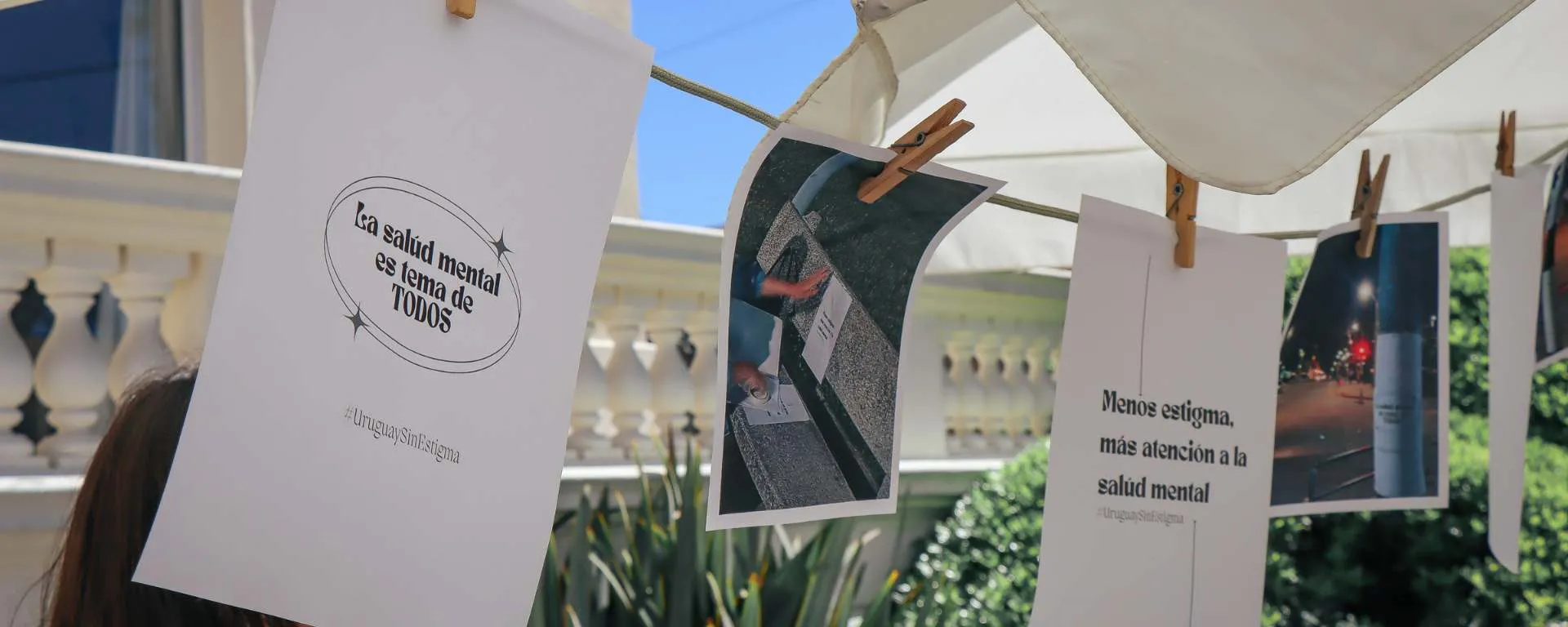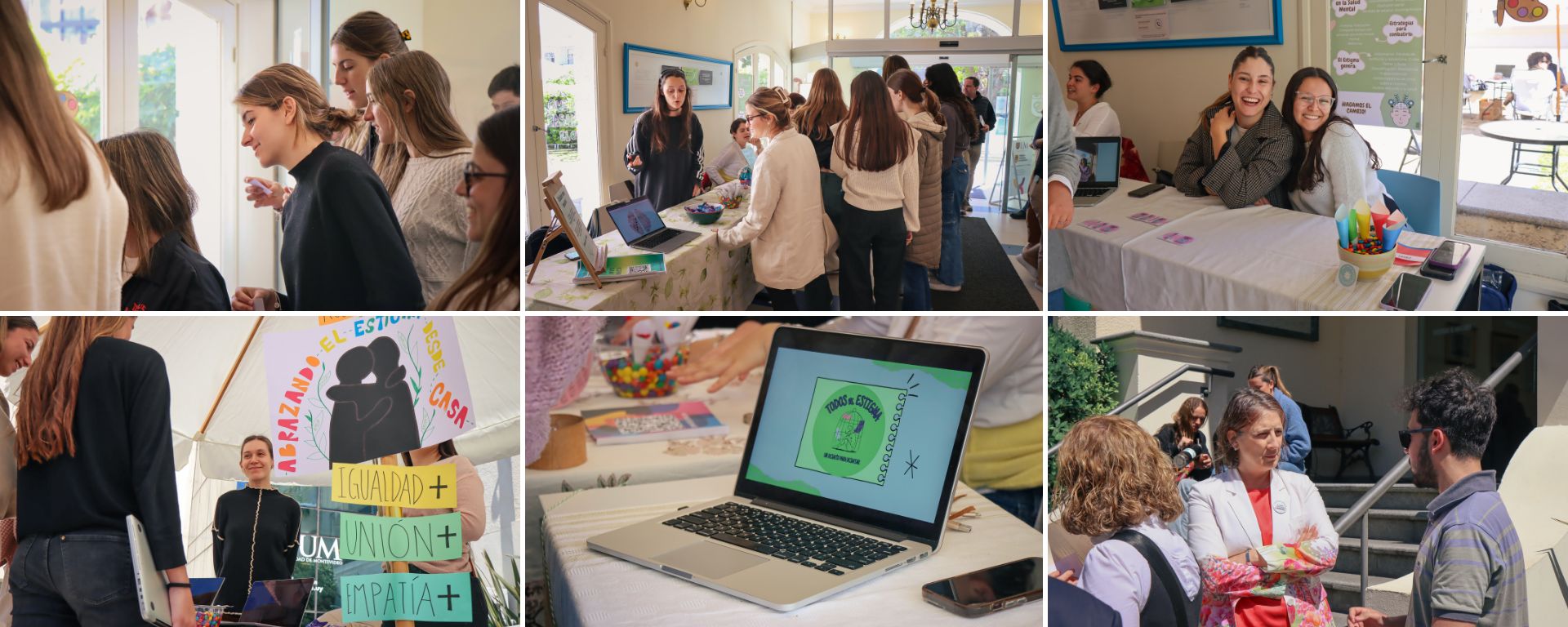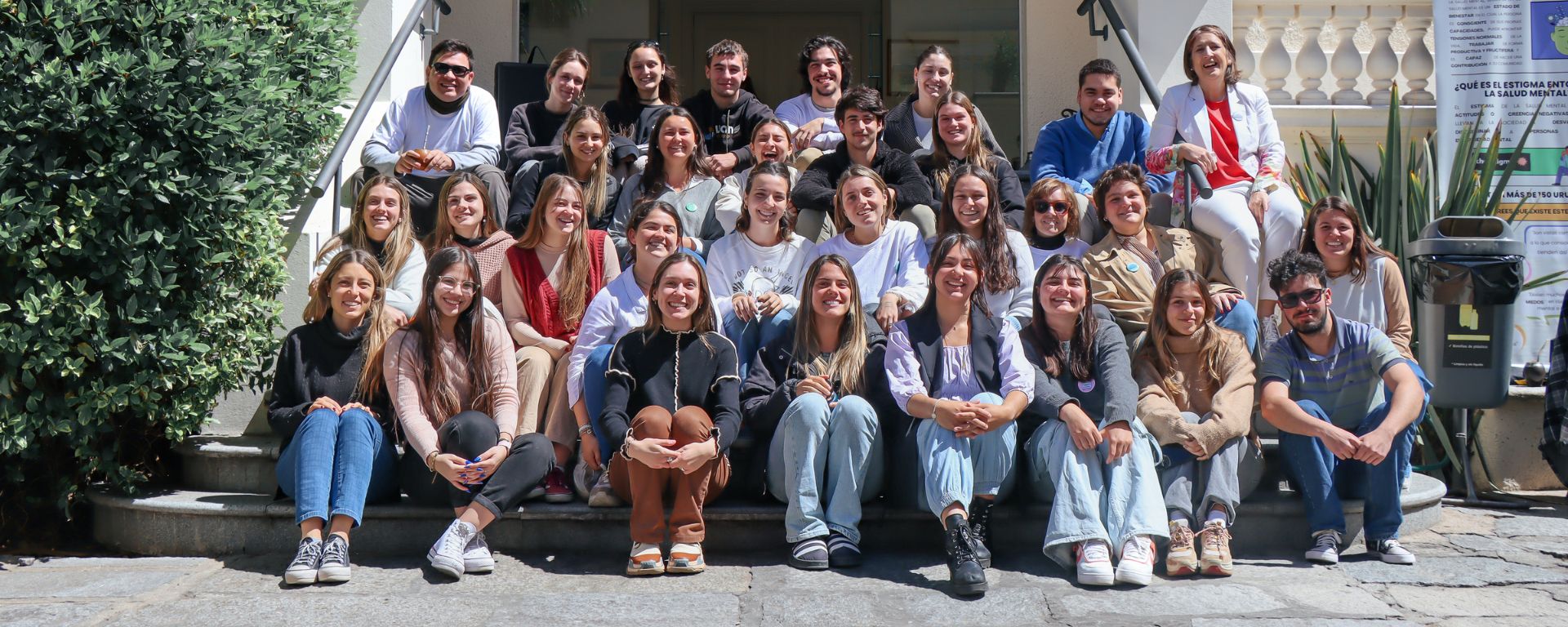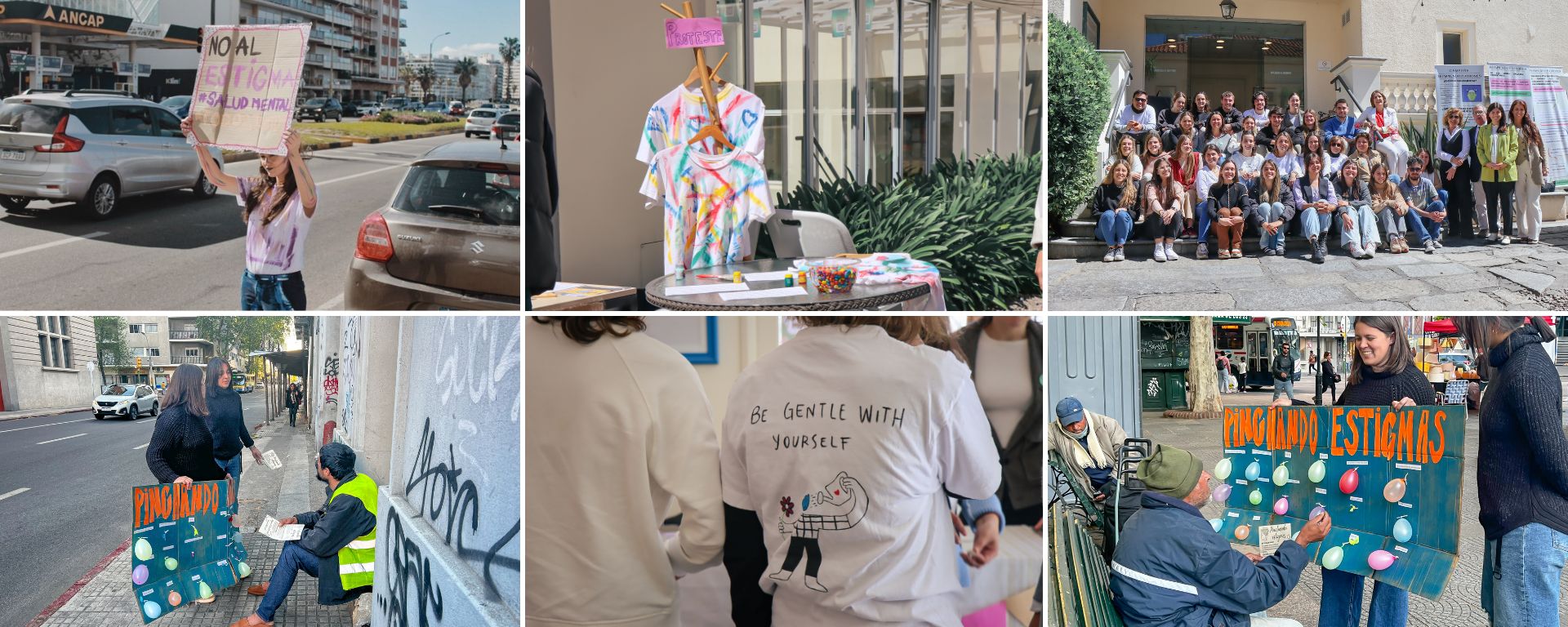Projects to fight the stigma on Mental Health Day at the UM

The UM had its Mental Health Day organized by psychology students. On Wednesday, October 18, they placed stands at the University's entrance, garden, and cafeteria, where they exhibited their work carried out during the year. The theme was "Breaking down stigmas", and had to have a local flavor. During the first semester, the students made their proposals, and they carried them out in the second. During the week, they presented the results to the academic community and other guests.
A group of students during Adult Psychopathology welcomed the people, explained their campaign, and handed out a sticker with a drawing and a phrase: "The labels are for the bottles. Not for people". This group was the winner of a contest that involved dozens of people. In this and the other stands, students explained stigma and how to combat it and shared their learnings during their research.
The teacher in charge, Dr. María Alcira Frontini, positively evaluated the activity. "They studied the topics in depth and then put their projects into practice". "The best way to learn is by doing. We were greatly surprised by the creativity of the proposals", she commented. Indeed, there was a great variety of projects: while some groups made videos and interviews in the street, others hung posters, made profiles on Instagram, or published a website. One of the groups focused on raising awareness among UM students, and another focused their actions on the countryside.
The exchange with the people was very enriching, as it allowed students to tangibly see what is missing and what needs to be done to improve mental health in the country.
"It was a creative way to evaluate ourselves. It broke with traditional schemes and put them into practice on the street. It was very enriching. Of other evaluations I have had, this is undoubtedly the most valuable", she added.
Joaquín Podesta, whose group interviewed one dozen people in different neighborhoods of Montevideo, commented something similar. "The good thing is that it took us many months of work and days of study. This is how we have the most information. I do not doubt that this project will stay with us forever because it took us a lot of time and a lot of energy to do it".
The teacher highlighted that the 32 students were involved in their groups, although they were composed randomly and not according to their affinity. "It is important to work with a common objective", she noted and agreed that this allowed students and the general population to see psychologists as health agents in society and convey that mental health is a reality beyond the offices.



